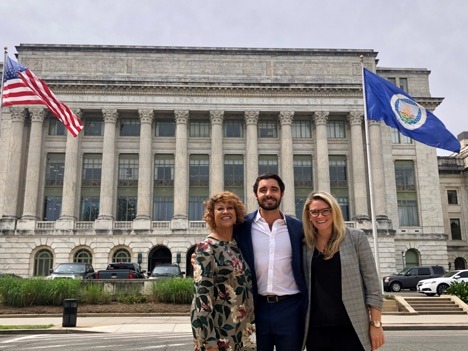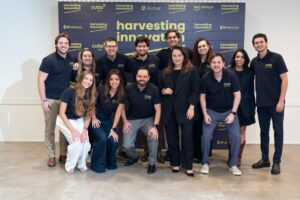Harvest is the most important time of year for any farming operation. For perishable products and farmers who aim to sell their goods locally, the season can be even more stressful as producers try to juggle countless data sets during the produce’s dwindling window of freshness.
In 2015, farmers sold $8.7 billion of food commodities directly to consumers, retailers, institutions, and a variety of local food intermediaries like distributors and wholesalers, according to USDA data. Consumers made roughly one-third of these purchases. More than 80% of farms selling food directly sold or marketed those gods within a 100-mile radius of the farm.
But running a farming operation on top of direct marketing its products can constitute two full-time jobs in one. Add in the stress and hectic nature of harvest and it’s a recipe for stress.
To address this common pain point, a variety of digital tools and marketplaces have entered the market but one, in particular, is hoping to give farmers marketing locally an edge.
“At our core, NATIVE is not a marketplace. NATIVE is a B2B solutions provider and our e-commerce utility for growers is just one solution that we provide. Early on, we realized that digital online marketplaces have a difficult time succeeding because of technology issues far deeper in the supply chain (i.e. farm level) or because they tried to take farmers’ stories and make them their own,” company co-founder Sarah Sanders told AFN.
The company’s technology connects farms with local buyers, aiming to maximize the value of their harvests and helping both buyers and restaurants deliver on the promise and demand of locally sourced food. It integrates real-time technology throughout the agricultural supply chain, providing seed-to-sale traceability, waste mitigation, and return on investment.
Joyce Hunter, former deputy CIO for the USDA, recently joined the startup’s advisory board bringing three decades of experience in the information technology industry. Hunter also oversaw policy and planning for the USDA from 2013 to 2017, including managing the annual IT spending budget of $3.4 billion.
“Sarah and I presented alongside Joyce at AgLanta, hosted by Agritecture and the Atlanta Mayor’s Office of Resilience,” Frank Pica, company co-founder, told AFN. “It was clear that Joyce is a leader in agriculture technology and has been at the forefront of innovation, food safety, and market transparency throughout her decorated career. From that point on, we were convinced that she shares our passion for democratizing data in the agricultural community, putting it into the hands of local farmers to find more revenue and growth opportunities.”
We caught up with co-founders Sanders and Pica to learn more about what makes NATIVE different,
How does your product differ from the many other digital marketplaces being offered today
Pica: In order to enable effective e-commerce for something as complex as the supply chain for perishables, we first need to address the lack of cloud-based technology, at the point of origin, inhibiting farms from telling their own stories. Peter Thiel said it best: “The most valuable businesses of the coming decades will be built by entrepreneurs who seek to empower people rather than try to make them obsolete.”
Are there any other startups that you looked to for guidance or as a model when you were getting started/as you scale up?
Pica: Not other startups, but certainly other industries. One industry that I personally understand very well is advertising technology. If you look at what has been achieved over the last two decades in AdTech it is quite impressive. The prevalence of connectivity between companies has created efficiencies and transparency that is unprecedented. With the adoption of technology and collaboration, Sarah and I are confident that a similar transparent market can be achieved in agriculture. Whether they adopt our technology or the technology of one of our competitors, we’re just happy to see adoption.
What’s your fundraising experience been like? Who are your investors?
Pica: Let me first say that it is always better to improve your business rather than improve your pitch. That being said, neither Sarah nor myself came from “money” so raising capital has been essential. All of our investors have been very supportive and their backgrounds range from successful SaaS entrepreneurs to scientists.
Any advice for other startups out there?
Pica: You need to be a shark out there. You’ve got to keep moving despite the insanely challenging scenarios you find yourself in. If you stop then you will die.
Have you interacted with any agrifood corporates? If so, who?
Sanders: Yes, we’ve interacted with several but most notably with KWS and US Foods.





